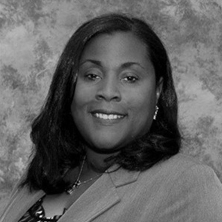
As I watched my accomplished young adult daughters leave the house with their carefully made protest signs, all I could do was pray. My husband had managed to talk them down on the first day of the protests after the murder of George Floyd. They had been on edge after learning about Ahmaud Arbery’s death too, but like many of us, they had settled into the sense of powerlessness that comes from seeing these events play out in the same way over and over again. For some reason, this was different. Their father had shared his concern that even a protest for a virtuous cause could quickly devolve into a dangerous situation, so it was probably best that they not attend. And then, of course there was the pandemic. So they retreated, but as the second day of protests began, they were not to be stopped. And I knew that no matter how frightened we were, it was time for them to take up the mantle.
Although I was afraid, I had to allow them to be the young women that we raised them to be…brave, outraged by the injustice of it all, tired of seeing African American lives devalued, ready to be an instrument of change, and fighting for their future no matter what were told. Even against the backdrop of a pandemic that disproportionately affected Black, Latino and Indigenous communities, they needed to go. Because they are young women, we haven’t had the full blown “talk” with them–the discussion about how to properly behave when encountering an unwarranted police interaction.
This is the discussion that goes, “better to come home alive and fight the righteous battle on another day, with your parents at your side, than to have a situation escalate and end with your death.” This is the conversation that so many African American families have with their children, particularly their sons. But as young African American women, their father and I knew that they were not immune. We have spoken to them from the time they were preschoolers about the importance of following the rules to the letter of the law. We have shared with them that they may not be afforded the benefit of the doubt that their teammates or classmates might be afforded. We have been “hard on them” because we understood the peril of a momentary lapse in judgement. And we have comforted them when an unkind deed or gesture, or unfair treatment based on the color of their skin, threatened to undermine their confidence, dignity, and health. Yet they are children of privilege, and their privilege has allowed for mitigation of some of these experiences. This is not the case for many children of color.
I breathed a sigh of relief and said another prayer when they returned home from the protest unharmed. Later, my younger daughter, a college student, and I watched the protest coverage from around the country together in silence. When I said to her, “I just wish they wouldn’t destroy things. Why must this protest be so violent?” she looked at me calmly and said “Mom, sometimes that is the only way that people are heard. Sometimes that is the only way that change happens.” As I looked for words to rebut her argument, I realized that she was right. I know this. I have always known this.
For those of you, who like me, watched in horror as cities all over America burned in the midst of chaos, this was a devastating experience. Why are they so angry you might have asked? The science of adversity helps us to understand both the health and economic disparities that leads to anger in marginalized communities. If we draw on the principles of trauma-informed care, we remember to utilize a universal precautions approach in our interactions with patients and their families. We remember that we have no idea what our patients and families have been through, until we ask them in a way that affirms their human dignity, regardless of race. And instead of thinking “What’s wrong with you?” we think, “What happened to you?” As the physicians and health professionals who care for children and families each day, I ask you to use your trauma informed lens as you watch the outpouring of anguish and pain in American streets. While we don’t condone the violent behavior, we should make an effort to understand it. You are seeing the culmination of centuries of physical and emotional trauma.
Racism is as infectious and destructive as COVID-19. Unlike COVID-19, there is nothing new about racism, but perhaps there is something new about this moment.
Racism is as infectious and destructive as COVID-19. Unlike COVID-19, there is nothing new about racism, but perhaps there is something new about this moment. As we find ourselves facing the twin pandemics of COVID-19 and racism, I ask you to think about our role as pediatricians. I recently heard a young white physician say that she wanted to become an anti-racist, but there was the painful recognition that first she would need to acknowledge her racism. How vulnerable yet powerful. In times like these, we will all need to have the courage to examine our beliefs and behaviors with this type of brutal honesty. We can’t address our biases if we don’t first acknowledge them.
The AAP policy statement on racism affirms that “pediatricians are uniquely positioned to both prevent and mitigate the consequences of racism as a key and trusted source of support for pediatric patients and their families.” As the statement suggests, pediatricians are in a position to both abate the damage of racism and plant the seeds of humanism within every young patient that we care for, regardless of race.
We at Reach Out and Read Georgia are committed to creating a culture of equity, diversity and inclusion for the children and families of our state. We are proud of the work that we have done to create a diverse staff, but we can and will do more. We welcome your input as we work collectively to dismantle the structural racism that has led to this public health crisis. With your ongoing support, we will continue our battle against the two pandemics.
As always, stay safe!
Terri
Terri McFadden, MD, FAAP
President, Georgia Chapter, American Academy of Pediatrics
Medical Director, Reach Out and Read Georgia
Landing Page Photo Credits: Elijah Nouvelage

